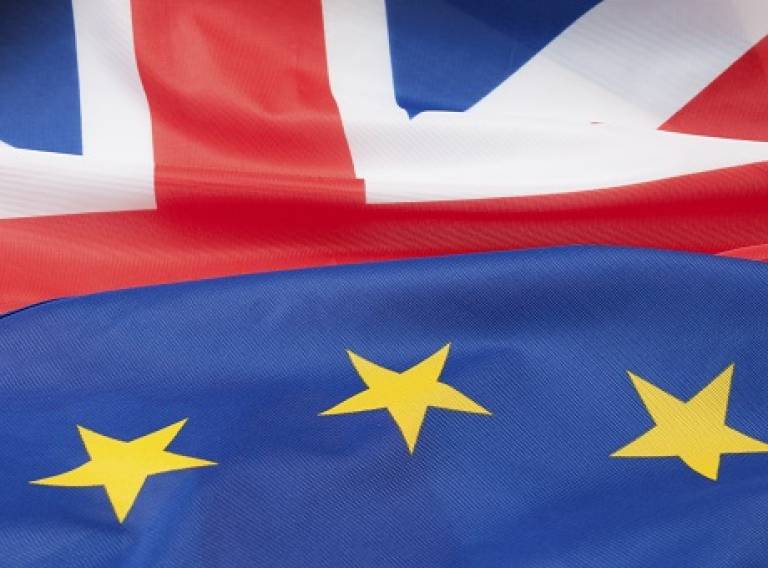“EU Referendum: Environmental & climate change consequences” UCL-Energy & The Edge panel discussion
17 June 2016

A panel of 6 research and professional experts convened by the Edge and the UCL Energy Institute presented factual evidence on how EU membership affects the UK's built environment and what the consequences of the Remaining or Leaving the EU would be.
The experts were:
• Dr Charlotte Burns, University of York
• Professor Janice Morphet, University College London
• Professor Michael Grubb, University College London
• Dr Robert Cohen, Verco
• Dr David Greenfield, Social, Environmental & Economic Solutions Ltd
• Mr Rob Lambe, Aldersgate Group and Willmott Dixon Re-thinking Ltd
The event did not take a view on whether to remain or leave, but the speakers presented a clear set of descriptions and observations about the current EU environmental and climate change directives and what options arise from their withdrawal.
It became increasingly clear from several speakers that many environmental and climate change issues cannot be solved only at a national level. These concerns make unilateral national actions difficult and require international collaboration. Several myths about sovereignty were examined and found to be misleading - the UK does have representation and influence within the EU on environmental policies; upon leaving the EU the UK will still be bound to many international obligations which impact on 'sovereignty'.
Britain has benefitted from its EU membership, as many large and small infrastructure projects have received EU investment - as much as 60% of the project cost is paid by the EU. There is successful pooling of UK and EU policies on infrastructure projects, integrated transport and spatial planning. This EU investment is not well known by the public.
The UK's energy interconnection with the EU provides a vital part of our energy security. As the UK's current energy generation capacity is below the anticipated peak demands in winter, the ability to import energy from adjoining European countries will help to keep the lights on for the foreseeable future.
The UK's EU membership has helped us to reduce waste generation and move toward a circular economy - a positive environmental impact for the construction industry. The shared burden in developing appropriate legislation shows a positive aspect of what has been achieved by working together.
From a business perspective, there is a need for consistency in order to plan and invest in a low carbon society. Our national governments have not provided consistent policies. This, in turn, has created negative impacts for both the environment and business. For example, the changes to the UK's feed-in tariff have decimated the PV industry and the UK's abandonment of the requirement for near-zero energy buildings will set back the transition to a low carbon society.
Several speakers said that EU Directives provide policy consistency and stability. The Directives provide a framework that allows for national interpretation and implementation. This gives certainty to businesses and professionals, especially for environmental solutions. In addition, EU programmes of investment work in flows rather than episodes, which mean that environmental, building, spatial and social goals are addressed over a long time frame.
image credit: (c) iStock
 Close
Close

